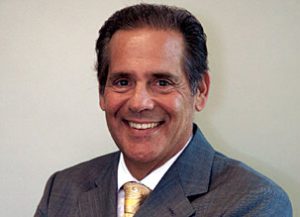
Stanford Kurland
PennyMac Financial’s Stanford Kurland has a habit of working in mysterious ways.
A veteran of Countrywide Financial, he joined that company in the late 1970s and rose through the ranks to become its president, leaving without fanfare in 2006 — just as the excesses in the mortgage market were beginning to become apparent.
In 2009, he quietly stepped back into the mortgage market, creating PennyMac Financial Services and its affiliate PennyMac Mortgage Investment Trust, organizations based in Moorpark that have benefited from the recovery in the housing market.
On Dec. 13, Kurland announced he was stepping down as CEO of the two enterprises effective Jan. 1, handing the reins over to his management team, in a move billed as bringing in a new generation of leadership.
He’ll stay involved, however, taking on the role of executive chairman of both organizations.
“I want to emphasize my intent to remain deeply engaged in leading the strategic and operational direction of the company for the foreseeable future,” Kurland said in a statement.
It would be fair to state that nobody knows more about the pipes and plumbing of the business of creating mortgage-backed securities than Kurland.
With incoming Treasury Secretary Stephen Mnuchin, who made a fortune buying and selling California-based IndyMac, talking about privatizing Fannie Mae and Freddie Mac — which provide the credit backstops for most of the nation’s mortgages — Kurland’s expertise would appear to be important.
If Fannie Mae and Freddie Mac are to be fully privatized, having some form of risk sharing partners will be important. And the role for Kurland in reshaping the nation’s trillion-dollar housing finance markets will likely grow.
The statement said Kurland will continue to represent the company with business partners and investors.
Whether his advice is formal or informal, his ideas about the privatization of Fannie and Freddie will likely shape how risk is managed in the housing market for decades to come.
Beware of ‘virtual kidnapping’ scam
Nothing strikes terror in the heart of a parent like the thought of losing a child.
Which is why the recent spate of so-called “virtual kidnapping” scams in Santa Barbara and San Luis Obispo counties is worth a word or two of warning.
The scammers dial a phone number and indicate a family member — typically a son or daughter — is in danger and unless money is paid “you will never see them again.”
The scammers are hard to track but reports of the incidents are on the rise, prompting schools to quickly verify that a child is in school.
If you get one of these calls our advice is this: Do not panic, do not give out any personal information and call law enforcement immediately.






 Print
Print Email
Email
















